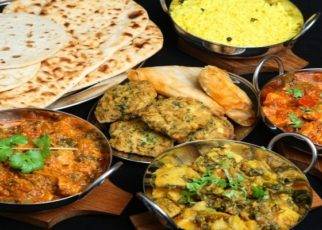When we talk about the most famous cuisines in the world, we definitely discuss Indian cuisine. What is so special in Indian cuisine? What makes Indian cuisine unique? Is that the Indian population worldwide who has been religiously cooking elaborate Indian meals everyday? Is that the propaganda made by the “World’s Finest Indian Restaurants”? Is that the mix of ingredients used to create the heavenly food? Or is that the simple way of living inspired by spirituality, virtues and emotional bonds among the humans?
Some of the points discussed below highlight the uniqueness of Indian cuisine and offer some insight into one of the oldest food cultures in the world.
Cultural Diversity
It is hard to tell the number of food cultures followed in India. Even if every state has its different culture, there are several sub-cultures in their cooking. Varieties of Idli, dosas and other dishes made from rice and lentils come from Southern India. Vegetarian and non-vegetarian Tandoori dishes, varieties of naan, roti and parathas are the specialty items of Punjab, which is a major state in Northern India. Coconut-based vegetarian and non-vegetarian curries, fresh fish and rice make a signature for coastal India. West Bengal, a major state in Eastern India is famous for its range of sweets made from Paneer (fresh cottage cheese). These are just a few examples of Indian delicacies, which are known to the world. There are countless of other varieties of food in Indian cuisine.
The Culture Itself
The Indian culture has a spiritual base. Indian cuisine is not an exception to this. The uniqueness of Indian cuisine is primarily in its belief in “Atithi Devo Bhav” (Guest is God). Indian Thali is world famous and is served in almost all Indian restaurents in the world. A “Thali” (plate) with varieties of vegetables or meat options, curries, fritters, chutney (freshly made sauce), raita (vegetables or fruits combined with yoghurt), roti (flatbread), rice and sweets is offered to God and then served to a guest with a prayer that the guest likes the food and the food offers health, joy and long life to whoever is having that. The Indian food culture is very broad-minded and accepts the best from other food cultures in the world. Potatoes, tomatoes, cauliflower and many other vegetables, fruits and ingredients, which were once exotic to India, have become integral part of Indian cuisine.





